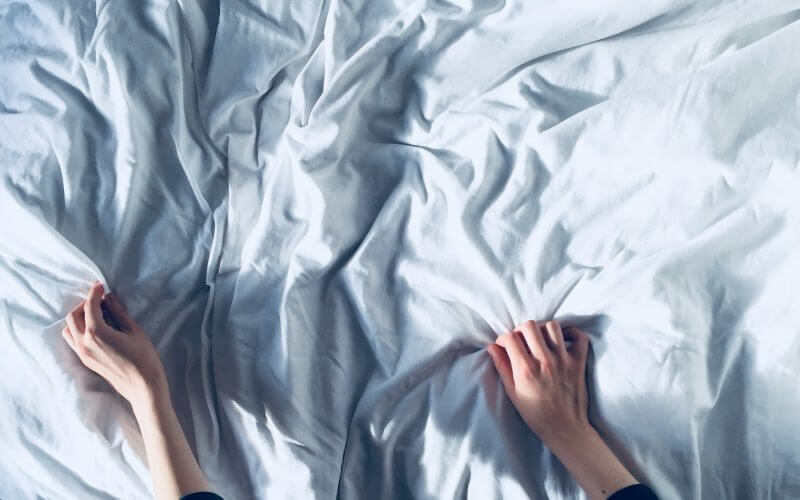Sex and sleep: Up close and personal
Sex and sleep- two much-loved activities, but just how linked are they? We pull back the sheets and get down to the nitty-gritty (science) to find out if there’s any truth to the idea that sex can have an effect on how you sleep.
Sex and sleep? It’s all about the chemistry
A 2017 study showed that of 282 adults over 60% (64% women and 61% male) reported improved sleep following an orgasm. This can perhaps best explained on a biochemical level, where several hormones are produced, hormones that can encourage falling asleep.
First, there’s oxytocin, the “love hormone” that contributes to intimacy as well as bringing a sense of calm and well-being. Next up, there are the endorphins, neurotransmitters responsible for pleasure and well-being. Finally, there’s serotonin, the precursor to melatonin, the night hormone. This cocktail is accompanied by a decrease in the production of cortisol, the hormone related to stress.

Sex and sleep, men and women
It’s an old cliché that men fall asleep straight after sex. But like many a cliché, there’s a grain of truth to it. On top of the chemical cocktail of peace and love described above, men’s bodies also produce a hormone called prolactin, linked to sexual satisfaction, when they orgasm. What’s interesting about prolactin is that levels increase during sleep, which could explain why men feel sleepy after sex.
Women get a little prolactin boost too. What’s more, a Danish study has proved that activity decreases in the amygdala and hippocampus, two parts of the brain responsible for alertness and anxiety. Women also experience an increase in estrogen levels which has been linked to better sleep quality.
Sex, especially good sex, sets in a motion a complex interplay of chemicals and hormones that decrease stress and anxiety and increase a sense of calm and contentedness. Feelings associated with falling asleep.
Sex and sleep: It swings both ways
Just as sex has an effect on how we sleep, our sleep can have an effect on our sex lives. The stress and anxiety associated with insomnia can cause a decrease in libido and sexual dysfunction. In fact when we’re stressed the brain starts producing more stress hormones like cortisol and suppresses the production of estrogen and testosterone.
If we don’t sleep, we feel more tired, and if we’re tired, we’re less likely to want to have sex. Studies have shown that the longer we sleep, the more likely we are to want sex the next day.
Sex and sleep: Good for your health!
Chemical, physiological, psychological- it seems that there is a link between good sex and good sleep.
Bad sleep affects our lives in various different ways. Our sex lives are no different. If you feel that your sleep is impacting your life in negative ways, or that you’ve been struggling with insomnia for a while now, Dreem might be just the thing for you. Our method gives you the tools to tackle sleeplessness head-on with a unique mix of cutting-edge neurotech and behavioral science.
Our program are made up of different challenges and programs designed to help you restructure your sleep and help you create healthy nighttime routines. The aim of stimulus control is to associate the bed with sleep in the brain, as such all activity except sleep is banned from the bedroom with one main exception: Sex. Proving once again sex and sleep really are “friends with benefits”.
Now, off to bed with all of you!
Discover your sleeper profile with this sleep test
Start




